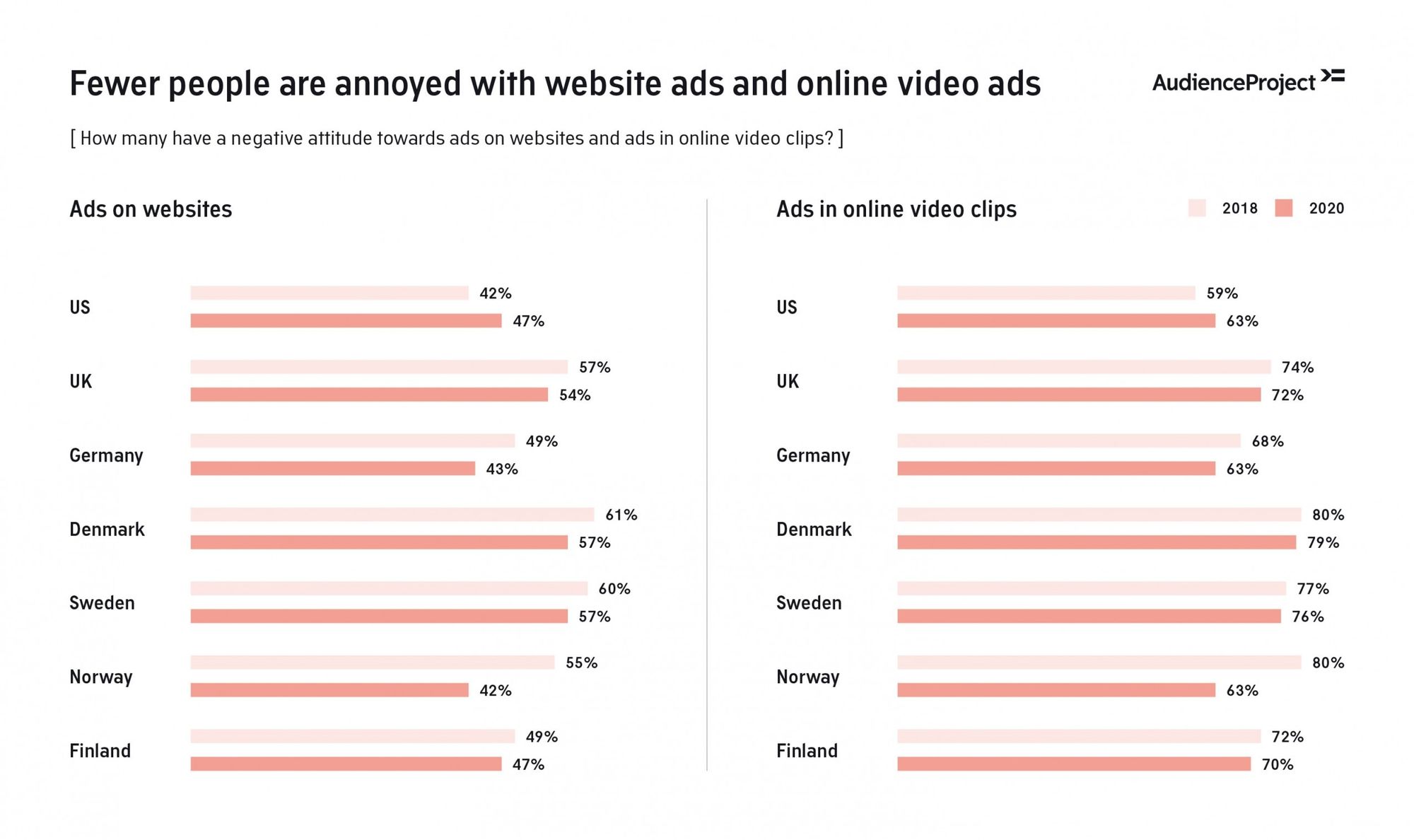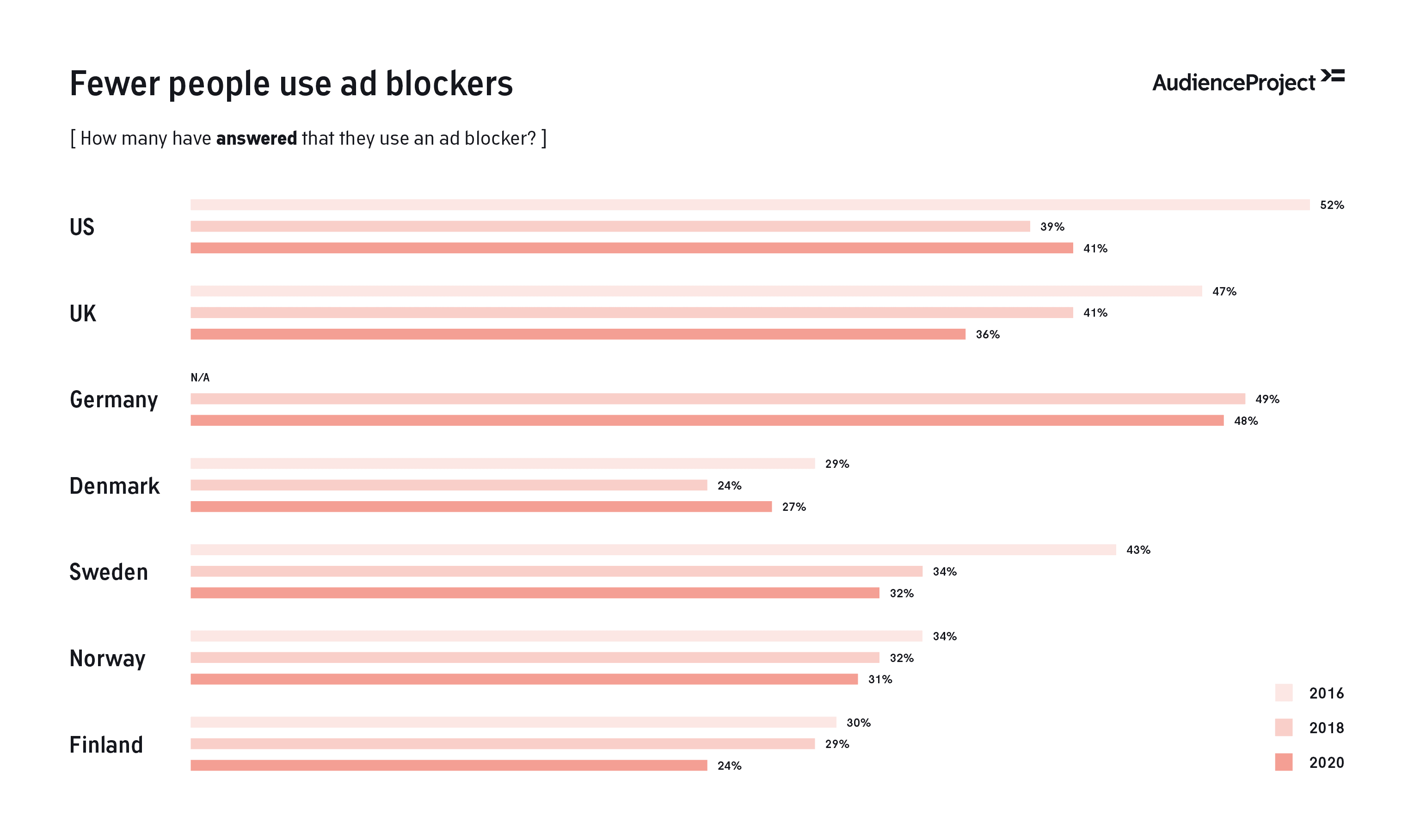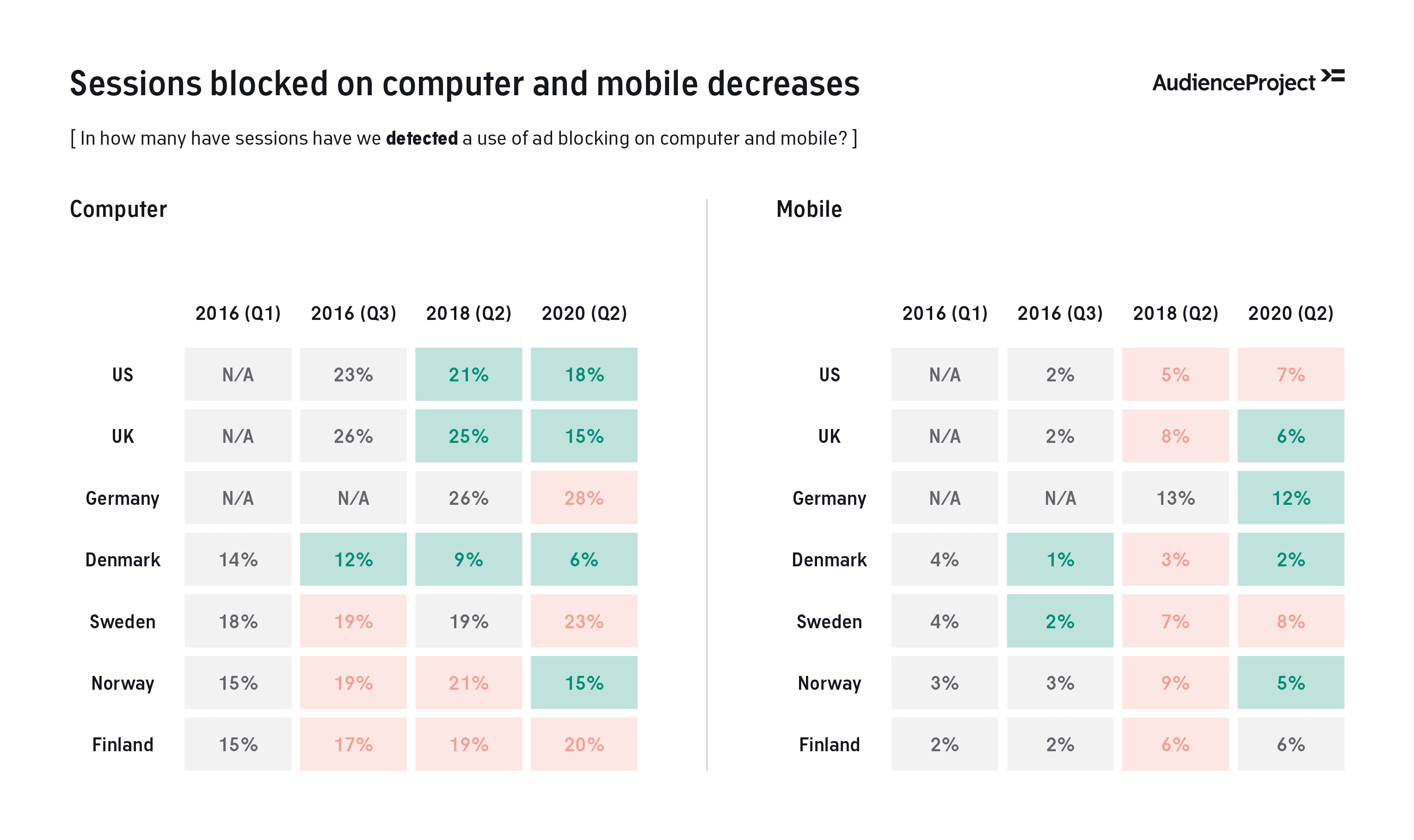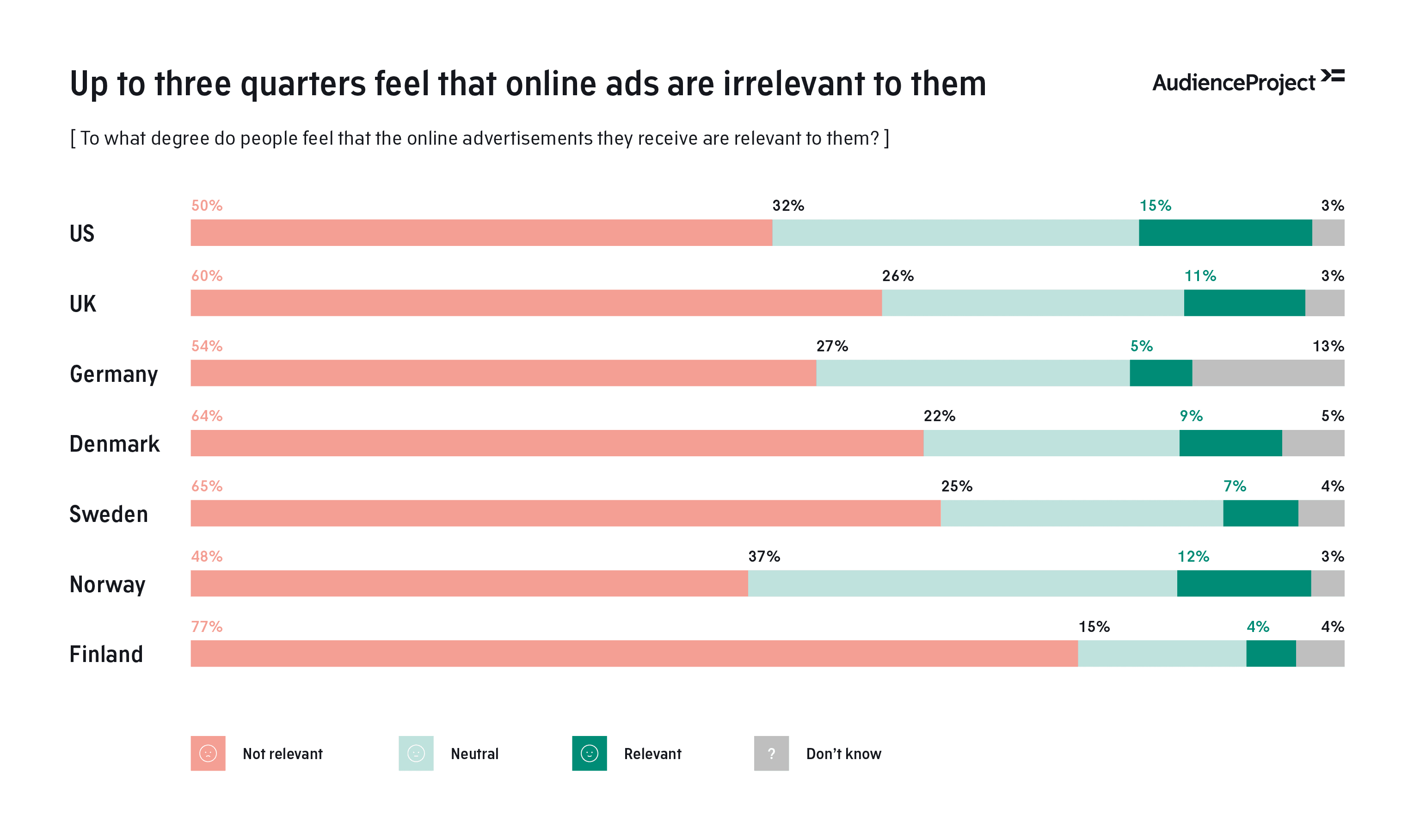Fewer people are using ad blockers, AudienceProject's study shows
From 2016 to 2020, the share of the online population using ad blockers has decreased across all countries.

AudienceProject this month published a study showing fewer people are using ad blockers, despite the majority still having a negative attitude towards online ads. The study shows that fewer people are annoyed with the ads they are exposed to.
According to AudienceProject, the study is based on more than 14.000 individual survey respondents across seven countries: the US, the UK, Germany, Denmark, Sweden, Norway, and Finland.
From 2016 to 2020, the share of the online population using ad blockers has decreased across all countries. Today, less than one-third in the Nordics are using ad blockers, while Germany – with close to half of the online population (48%) using ad blockers – is the country where ad blocking is most widespread. In the US and UK, 41% and 36% are using ad blockers, respectively.

Ad blocker install rate on desktop Chrome, in North America and Europe, has dropped 60% since late 2016 and the first quarter of 2020, Digiday reports.

AudienceProject sees that the share of sessions blocked on the mobile is also decreasing in both the UK, Germany, Denmark and Norway. Only in the US and Sweden, they see a small increase in the share of sessions blocked on mobiles. In Finland, it is status quo.
In most countries, more than half of the online population finds that the online ads they are exposed to are irrelevant to them. In Finland, this goes for more than three-quarters (77%) of the online population. In comparison, it is just about one in ten who feels that the online ads they receive are relevant to them.

TCF v2.0 introduces a new form of ad blocking
The GDPR (General Data Protection Regulation) in Europe, and the respective implementation TCF v2.0, introduces a way for users to block the ads. Users that do not give consent will not see any ads.

